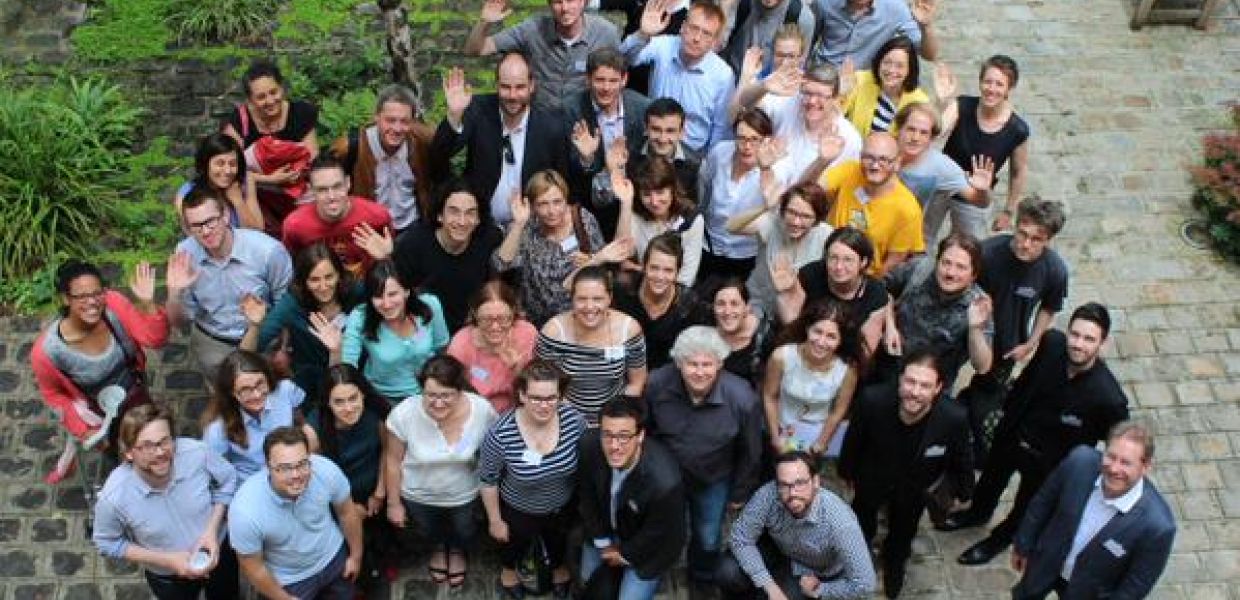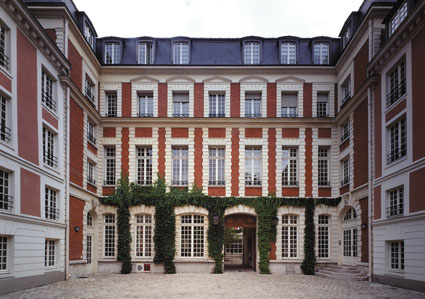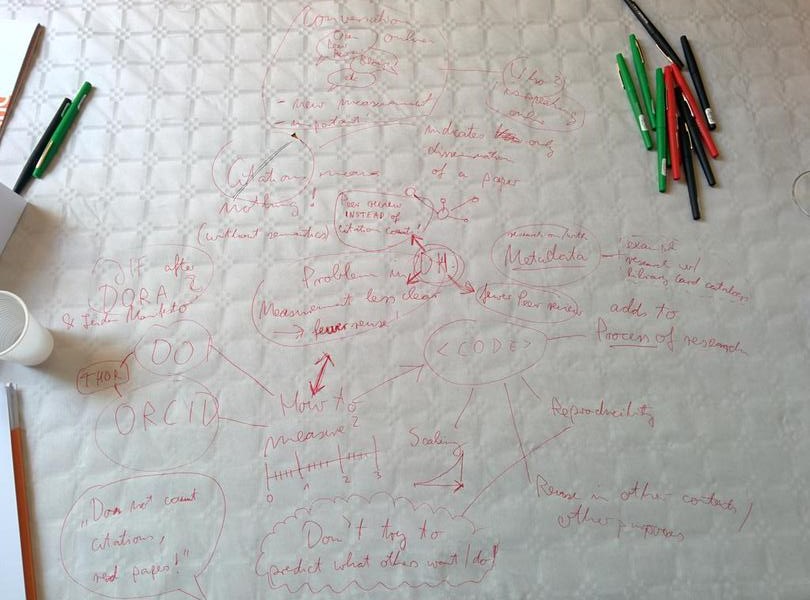Spreading the word on Europeana Research

Last month, I travelled to Paris to take part in the Digital Humanities Experiments Conference #dhiha6 held at the German Historical Institute Paris. Revolving around the theme of “experiments”, this two-day conference gave to approximately 20 young researchers, including me, the opportunity to express their own views and experience from the area of Digital Humanities in a friendly, highly dialogical environment.

The German Historical Institute Paris
Hosted in the beautiful building of L’Institut historique allemand (IHA), in Le Marais, the Digital Humanities Experiments Conference 2015 aimed to address the gap between the research culture with which Digital Humanists are equipped via their disciplinary backgrounds and the research culture they foster in this field.
“Why does experimentation play a crucial role in Digital Humanities? How does it contribute to define the relationship between method and research questions? Can we identify barriers which currently prevent Digital Humanities from developing their full potential, leaving little room for iteration, comparison or failure?”
In this context, some of the topics explored were:
- The value of failure in science
- Research infrastructure as experiments
- Digital research and creativity
- Interdisciplinary experimentations
- Define a protocol
- Citizen digital humanities
- Bibliometrics
Examples of experimentation
From ConverStations to Laboratories, the Conference itself was structured based on an experimental basis. Conversation Stations were introduced as a way for the participants to debate different topics, at different tables with different people. With each debate lasting 17 minutes, participants were creatively expressing their views on four of the topics presented before, chosen according to their interests. Following this, four parallel Laboratories were held on four thematic sessions:
- Laboratory 1: Aggregate, visualize and browse information about researchers and their activities
- Laboratory 2: Open analytical ecosystems for digital humanities
- Laboratory 3: Texts in a Laboratory
- Laboratory 4: Machine Translation

ConverStation on Bibliometrics
As part of the experimentation in the Digital Humanities, the organizers of the conference called for blog posts, rather than for papers or articles, encouraging participants to contribute to the Blog Carnival: Experiments in Digital Humanities #dhiha6 before their arrival in Paris. Being part of the team of Europeana Research, I grasped this opportunity for introducing the work of building such a research infrastructure as a space of collaboration, experimentation and research. My contribution thus focused on my involvement in this ‘Digital Humanities endeavour’ for formulating the user requirements of the research community, Humanities and Social Sciences, and building a researchers’ network followed by work on the actual outcome of the digital platform, build to serve the community and its needs. This journey through desk research, case studies, web survey and Expert Fora in collaboration with the wider Europeana Research team was presented alongside other research initiatives in the platform Medium. Spreading the word on Europeana Research agrees with the 2015 internal targets as a way of continuing to gather user requirements and feedback from the wider community.
